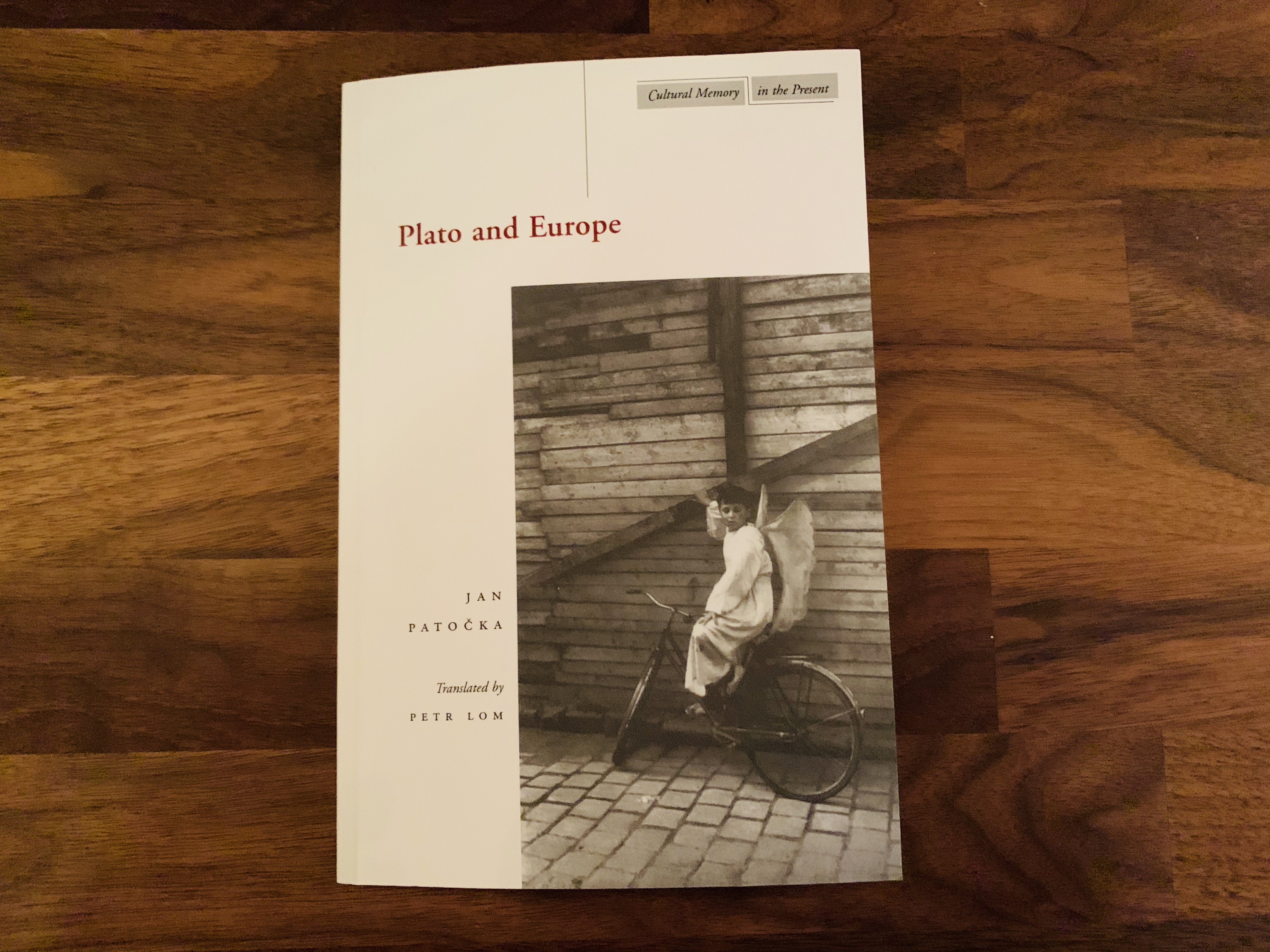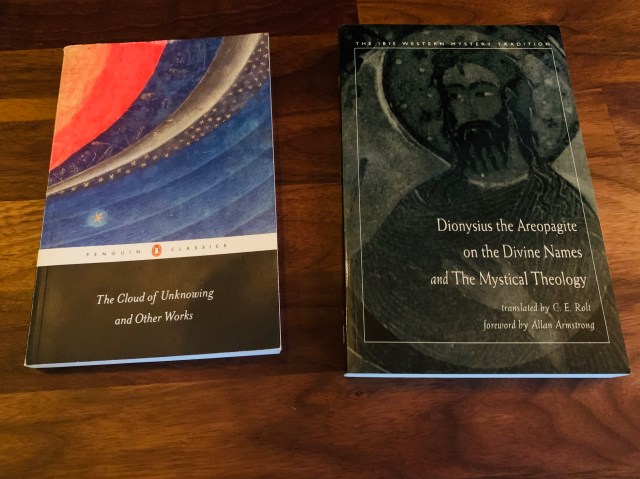Pseudo-Dionysius and the anonymous author of The Cloud of Unknowing have much to offer this conversation on thought and prayer. In both cases, contemplation is positioned as a craft that can be taught—like woodworking or writing—and that the work of this craft is a practice of unknowing, a leaving behind of the senses, reasons, and thoughts of the intellect. And yet, in this via negativa tradition, the practitioner is also instructed in the ways of contemplative prayer, a method of using words and phrases to guide the development of the practitioner’s skill. The practitioner is instructed to choose a sacred word—something simple, such as God or Love—that stands as the symbol of intent for accepting God’s presence within the contemplative’s awareness.
Continue readingThe Epistemic Significance of Via Negativa and Contemplation
I’ll be giving a virtual paper at Villanova’s Patristic, Medieval, and Renaissance Conference on October 16. The theme is “Thought and Prayer.” I’ll be exploring the themes described below. As usual, I’ll post notes and audio later, as possible.
Dionysius the Areopagite and the anonymous author of The Cloud of Unknowing have much to offer a conversation on thought and contemplation. In both cases, contemplation is positioned as a craft that can be taught—like woodworking or writing—and that the work of this craft is a practice of unknowing, a leaving behind of the senses, reasons, and thoughts of the intellect. And yet, in this via negativa tradition, the practitioner is also instructed in the ways of contemplative prayer, a method of using words and phrases to guide the development of the practitioner’s skill. There is, then, a relation between thought and contemplation, where the virtue of contemplative practice acts as a preparation for thought and where thought, in turn, acts a preparation for contemplative experience. In this talk, I will offer an account of the epistemological significance of this relation through a discussion of the principal (consciousness, reason, and will) and secondary (imagination, sense perception) faculties discussed in The Cloud author’s text.
Revisioning Reason and Spiritual Exercise
I’m posting another draft excerpt of the book manuscript / dissertation here. As with the Modes of Askēsis literature review, this excerpt is a little too long for the blog post format, so I’m keeping it to a pdf download for now. These are work-in-progress drafts, and as you’ll see there’s a little bit of overlap between the end of this section and the end of the literature review. I’ll be continuing to work on the manuscript throughout the end of the year, but these pieces can effectively stand on their own. I’ve also included the essay below. Continue reading
The Contemplative’s Socrates: A Dialogue
I’ll be in dialogue with David Collins (@bodhidave3) at The Stoa on August 20.
We’ll be discussing Dave’s latest article for TSV, “The Contemplative’s Socrates.”
RSVP here for access.
Dave will highlight Socrates’ daemonic and spiritual side, offering the perspective that the origins of Western philosophy were rooted as much in contemplative practice as in rational argument.
I’ll draw from some of my own research to ask Dave about the relation between spiritual exercise and reason, using insights from Pierre Hadot.
Askēsis and Care of the Soul

In the lectures published as Plato and Europe, Jon Patočka (1907–1977) asks a series of questions: What does the soul mean? What is its significance? and What does it mean to care for it? These questions Patočka says are central to the heritage of Europe’s spiritual identity. To answer them, he will appeal to readings of Greek myth, Plato, Democritus, and Aristotle, but more fundamentally these questions are approached in the mode of phenomenology, principally stemming from a unique reading of Husserl, and to an extent Heidegger. I won’t recount Patočka’s historical exegesis here, as my concern is with the phenomenological account he gives, and with how this understanding relates to the role of askēsis, or spiritual exercise, in the formation of perception. To this end, I will summarize Patočka’s phenomenology, paying attention to the role care of the soul plays within it, before making my own connections with askēsis. Continue reading



